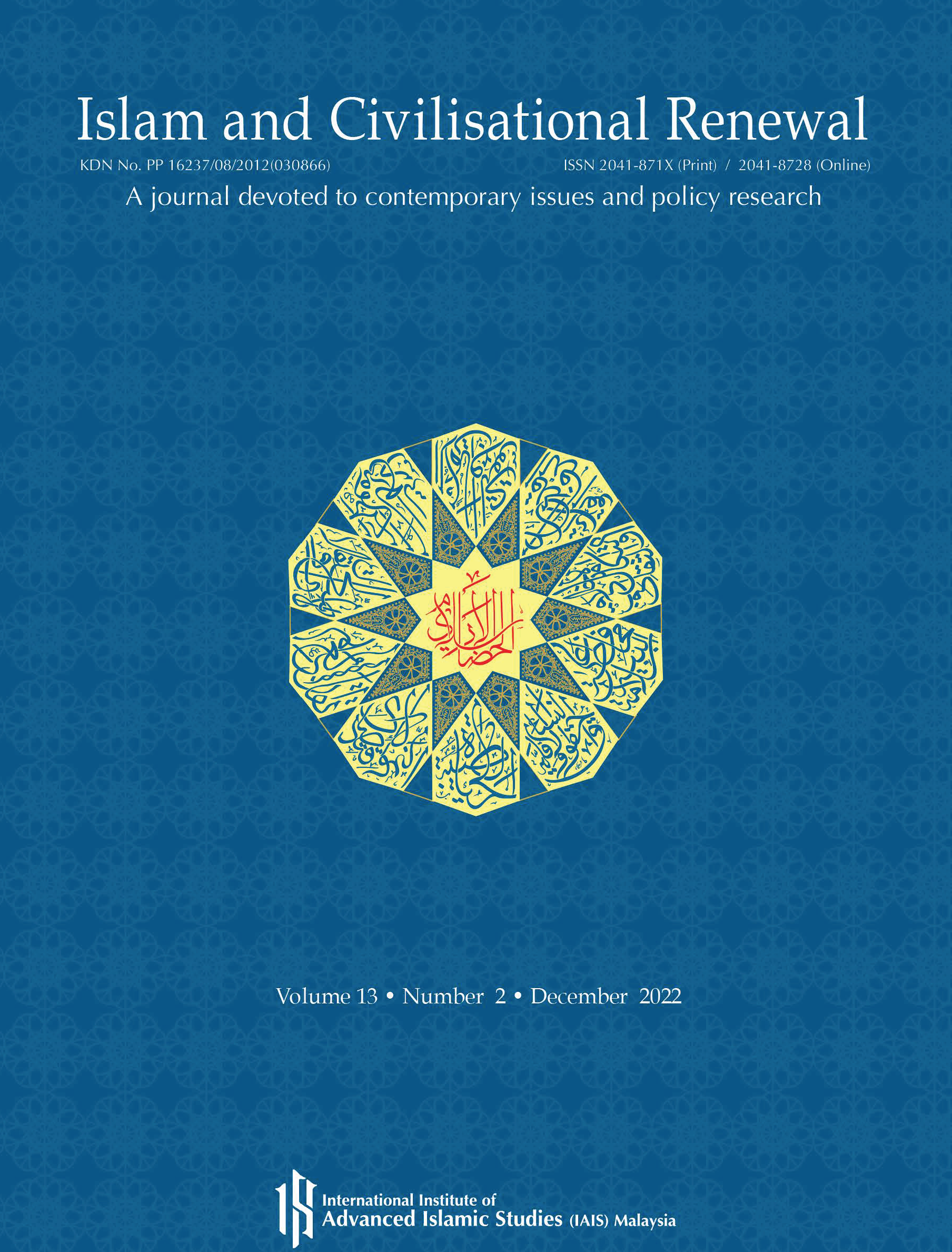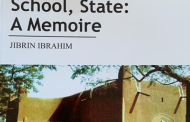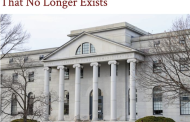A revised version of an article written some years back, this piece by Abubakar Aliyu Liman, Professor of Comparative Literature and Popular Culture at the Ahmadu Bello University Zaria, Nigeria is published unedited. Elevated reactions are welcome.
I am compelled to venture into the issue under discussion not because of my certified qualification or competence, or perhaps because of some guarantee of innocuous claim to theological authority that I do not have. Not even to talk of self-styled clerical authority that confers the kind of legitimation being flaunted by latter-day gatekeepers of our faith. I am specifically referring to those clerical elements amongst us who are disdainfully turning Islam into a philistine creed, based on their own hermetic understanding and the spiritual practices hatched right from the earlier days of doctrinal cleavages within Islamic faith itself.
I am squarely attacking those who have haughtily arrogated to themselves the right to speak for Islam and Muslims under all circumstances without sufficient knowledge of Islam or the ability to historically contextualize the complex realities of our world, especially under the most brutal conditions of the dominant global capitalist social and political systems defining human existence in contemporary society. Islam is cohabiting with other faith systems within the ideological dead zone of postmodernity, a highfalutin culture that totally defies the knowledge and comprehension of our half-baked clergy who are everywhere laying authoritative claims to issues beyond their training and competence.

The author
I would express my contentious position by declaring that I do not fit into any form of naïve profiling, categorization, nor would I accept being pigeonholed into some ill-informed watertight compartmentalization and sectarian proclivities of postmodern Islam. By postmodern Islam, I mean a form of Islam that is distinguished by its worldly flirtations, spiritual aridity, knowledge obfuscation and jihadi pretentions. At least with benefit of hindsight, garnered through the historical experiences of other sister faith systems, specifically looking at the travails of Christianity in early modern Europe and Renaissance period, some useful lessons could be drawn by Muslims. The historical experiences of our own faith have however provided us with the pieces of evidence needed to unbundle our befuddled and chaotic present. Anyway, we need to thoroughly grasp what is happening to us as a community of faith. The lessons from the history of Christian Europe we ought to learn from should serve the Muslim faithful very well if we are really serious with the Islam we profess. The checkered history of the Christian faith vis-à-vis the overbearing influences of the power structures and institutions of global hegemony should have become an important guide to us on how not to tread similar trajectories. Never mind the fact that our own historical trajectory is slightly different considering the Qur’anic openness to reflection and contemplation in the processes of knowledge construction, especially as witnessed during the formative years of Islam, which, alas, is denied to Muslim faithful today by the obscurantist speakers of the faith.
Why am I revisiting this issue? I will tell you in a moment! It all started with my encounter with a non-Muslim orientalist academic who was doing a book project on Islam in Africa. I think it is worthwhile to bring the issue to the notice of the reader once again. It all happened about a little more than a decade ago. The encounter took place during one of my postdoctoral forages at the School of Oriental and African Studies (SOAS), University of London, in 2013. You won’t believe it! I was asked an unexpected question by that scholar concerning the contribution of African Islam (whatever that means?) to Islamic civilization. The lady scholar raised the question during one of those highly cerebral seminars at SOAS. The lady wanted me to assist her with some insights on the contribution of African Muslim scholars, thinkers and builders, to the civilizational pool of global Islam. At first, I became somewhat flabbergasted, confused and disoriented, of course not by lack of knowledge in the field (thousands of apologies to Syed Hassan Nasr and his obsession with Islamic Science), but by the sudden realization of the irony of the overwhelming dominance of the wonders of Western Science and Technology in the context in which the discussion took place.
I humbly requested the lady to give me time to recollect my knowledge and understanding of the issue at hand. This is because I was completely taken off guard. It was not a question that I expected someone to ask me after my contribution to a related issue that the seminar presenter raised. I was also cautious not to naively volunteer information to a total stranger because of the ideological context in which she was conducting the research, and the creeping sense of triumphalism I noticed from her demeanor as an orientalist scholar. I am here referring to the ideology of orientalism exhibited by most western researchers over the conquered Islamic world – society and civilization. Western modernity, which has completely appropriated the established landmarks of other world civilizations before it, is for quite sometimes throwing its ideational jibes at whatever claims anybody would put up in order to make case for previous efforts at civilizational project from antiquity to the present; from the point at which modern West assumed the hegemonic mantle of leadership in the world with all the attendant baggage and consequences it entailed. I was indeed not willing to receive the blows of my failings from the insinuations of a non-Muslim individual scrutinizing the practical inadequacies of my faith.
In civilizational terms, despite Islam’s sterling scorecard in its spectacularly mediatory role, and in the historical debt owed to Islam when it brought to the notice of premodern West the value of philosophical inquiry and scientific thinking, which Muslim scholars curated from its Sufi traditions, other Oriental systems of thought and Greek rationalism at the crucial historical moment that gave us what is otherwise known today as western modernity, and the civilizational project it manages to bequeath, nay, imposed on the rest of humanity. If you ask me, those ideational values are the best contribution that Muslims had offered to the civilizational grid of the West, which was subsequently deployed to dominate and subjugate the entire world. Undoubtedly, this is the contribution that Muslim scholars made by reconnecting Western intellectual traditions to humanity’s collective match towards the endless possibilities of culture, knowledge, refinement, reason and creativity.
Remember the golden age of Islamic civilization that was spearheaded by Muslim thinkers, scholars and scientists? Without doubt, the most important milestones showcasing the contribution of Muslims to modern civilization have since been silenced, degraded, falsified, undermined or even eroded beyond recognition, deliberately by Muslims themselves, and by non-Muslim detractors as well. This could only happen because as Muslims we have become increasingly divorced and alienated from the uncompromising stance of Islam in discharging its role as a universal moral order. As Muslims, we have since those earlier days abandoned our moral, ethical, cultural and civilizational responsibility to humanity. Muslims today tend to manifest an unhealthy inclination to philistinism and obscurantism, which ironically have no basis in Islamic civilizational schemata. Our total loss of center is merely accentuating our plight today.
Little surprise then when other civilizational contenders seized the opportunity to help us undo the great legacies of Islamic civilization through our follies, through the machinations of alien political and cultural institutions imposed on us by the forces of European colonial conquest and forces of imperialism, and by the globalizing agendas of successive dominant hegemonic powers of the world represented by United States. Does it surprise anyone? No! I also do not think we are unaware of this aspect of our history. Over the centuries, as Muslims we have reduced our faith to hermetically sealed codes of dry rituals that have evidently no bearing on any form of social project or scheme of human progress.
 But we need to engage ourselves in a form of inhouse introspection in order to rejuvenate humanity’s civilizational quest all the same. I am referring to the evil machinations that are continuously and mindlessly hatched by the suffocating system of corporate capitalism, liberal values and postmodern culture, which are cancerously afflicting all shades of human species, communities, cultures and nations in different locations of the globe. I am here talking about undesirable satanic civilizational matrix imposed on humanity, with all its oppressive and exploitative social, political, cultural and economic nuances, which is right now falling apart right at its birthplace in the metropolitan enclaves of the West as well as in other parts of the world, particularly in places in which western hegemony reigns supreme.
But we need to engage ourselves in a form of inhouse introspection in order to rejuvenate humanity’s civilizational quest all the same. I am referring to the evil machinations that are continuously and mindlessly hatched by the suffocating system of corporate capitalism, liberal values and postmodern culture, which are cancerously afflicting all shades of human species, communities, cultures and nations in different locations of the globe. I am here talking about undesirable satanic civilizational matrix imposed on humanity, with all its oppressive and exploitative social, political, cultural and economic nuances, which is right now falling apart right at its birthplace in the metropolitan enclaves of the West as well as in other parts of the world, particularly in places in which western hegemony reigns supreme.
In recent times, as we attempt to come to terms with the forces of postmodernity, and as we double down our irrational and unreflective perception of the more ferocious civilizational forces that swept us to the margins of world history, another round of obscurantism is threatening to close our chances of survival, together with our chances of history making, probably for the foreseeable future. And this is all due to our current state of atrophy, lethargy and inertia. Almost as if by consensus, as Muslims we have now decided to stick our heads further into the sand of irrelevance like the proverbial ostrich. We seek answers to our predicament by slapping ourselves with an obscurantist, intolerant and inhuman version of our creed that is only accelerating our decline as a community of faith, culture and civilization, and worst still, preventing us from occupying our rightful space on the world stage. This is happening because of our incredible negligence of the humanizing role of culture, knowledge, sciences and technological mediation of life in social settings, or in our poor handling of anything that demands our civilizational framing.
As it is, as Muslims we are increasingly ignoring the fact that there cannot be any appreciable material and spiritual development or progress of the human faculties without culture. Culture is indeed the sine qua non of civilization, any type of civilization for that matter, including spiritually based ones.
Therefore, it is only the immersion of individuals into the authentic forms and values of culture that can effectively guarantee its humanizing qualities: its contents, its forms, its aesthetics, its learning, its sciences, its philosophy, its civility, its ethos and, above all, its moral and ethical beauty in our eyes, and in the eyes of the world. In other words, without culture, there cannot be humanity; and without humanity there cannot be refinement (civilization) or perfection (the best human qualities one can possibly attain). There also cannot be the ability to appreciate or differentiate the beauty of our identity markers as particular set of human beings, as Muslims and as whatever we are, and as anything that our humanity could possibly shape us to become.
In any case, out of the unique justice of the only Creator of the known and unknown universe, it is easy to observe the equitable distribution of potentials, abilities and capacities amongst all members of the human race, despite color and creed. God did not say you are special because of your membership of this or that race, this community or that community, this faith or that faith. No! Spreading those qualities equitably is the validation of the universality of God’s justice to our common humanity irrespective of race and creed. One can only be special through the conscious choices one is able to make within the spectrum of our moral quotient.
Moreover, it is our will to act or even our tenacity to excel through the creation of an enabling environment with which to harness the capacities that differentiate us in our complex diversities from environment to environment, society to society, culture to culture, individual to individual. In short, in those things that have more or less accentuated our distinctions, one from another, as members of the human race. Despite the certainties of faith we exhibit, it would be grossly a fatal error to ignore our common humanity, our responsibility to one another as members of the human race beyond any form of primeval consideration. Our shared humanity demands nothing less from us no matter what we think we are in the great canvass of human kaleidoscope. The baseline of every act of a Muslim is justice, love, virtue, good and righteousness. We ignore these principles at our own peril.
But what is the station of Muslims today in the potpourri of contemporary civilizational grid? To answer this question, we simply need to critically and dispassionately examine our state of affairs. Slowly but surely over the ages, as Muslims we have boxed ourselves into the quicksand of moral decline, ethical degeneration and civilizational decay. What is wrong with us? Is it our misunderstanding of the mission of Islamic faith that is wrong? Is it our mythical perception of reality? Or is it our misinterpretation of a faith system that is full of symbolic meanings? What is it exactly? Whatever is the problem, we have nobody to blame but ourselves for the mess that we have plunged our faith system into through our own collective folly.
More often than not, it is due to our own unbridled bifurcation of the faith into the things of this world and things belonging to the other world by proceeding to wrongly prioritize the other worldly without commensurate understanding of the binary connection between the two worlds. But we are spectacularly failing in the placement of our priorities, in structuring our scale of values, in our unconscious obscurantism, in the ignorance of our own being, and in knowing our place in this world. To make things worse, there is total absence of historical consciousness, which overtly hampers the way we organize ourselves into communities, and in our endeavors. All these factors have conspired to land us in the difficult situation we have found ourselves today.
Many contemporary Muslim scholars and intellectuals are metastasizing into paranoid hordes of confused individuals because of their inability to reflect, critique and engage coherently with the actual causes of the cultural stupor in the house of Islam. They then proceed from there to feed a cross-section of their followers with ill-conceived understanding and reading of what went wrong with us as doggedly unflinching community of the faithful. Consequently, we have ended with all forms of weird approaches in the processes of unraveling problems afflicting us. The outcome of which could be seen in the birth of extreme groups, and more extremist inspired ideologies within Islamic kingdom itself. These are ideologies that are teleguided by both adherents and enemies of Islam from left, right and center.
In case we do not know, Islam has entered into historical phase of civilizational inertia, a form of inverted medievalism, and scriptural orthodoxy arising from pliantly uncritical textual hermeneutics. These signs of cultural and civilizational drudgery have begun to rear themselves immediately after scoring a number of feats during the golden age of Islam in the 7th century AD. But now, we are in a state of irrelevance on a global scale, with massive ossification and obfuscation of the humane mission and vision of our faith. All this, as far as I am concerned, comes about largely due to our own negligence of our place in history. How else do we explain the acute atrophy and ultimate collapse of our values, sociality, culture, civilization, enlightenment and humanity? What exactly is wrong with our system of education? Whatever is wrong, we have nobody to point finger at but ourselves, even if our woes were made possible with the aid of the enemies of our faith. If we have not created the opportunity for anybody to play games with us and our faith, the situation would have been different for us.
With all sense of humility, as Muslims we would not be able to address our misfortune in this world until and unless we go back to the drawing board to retrace our footsteps from where we initially erred.




























